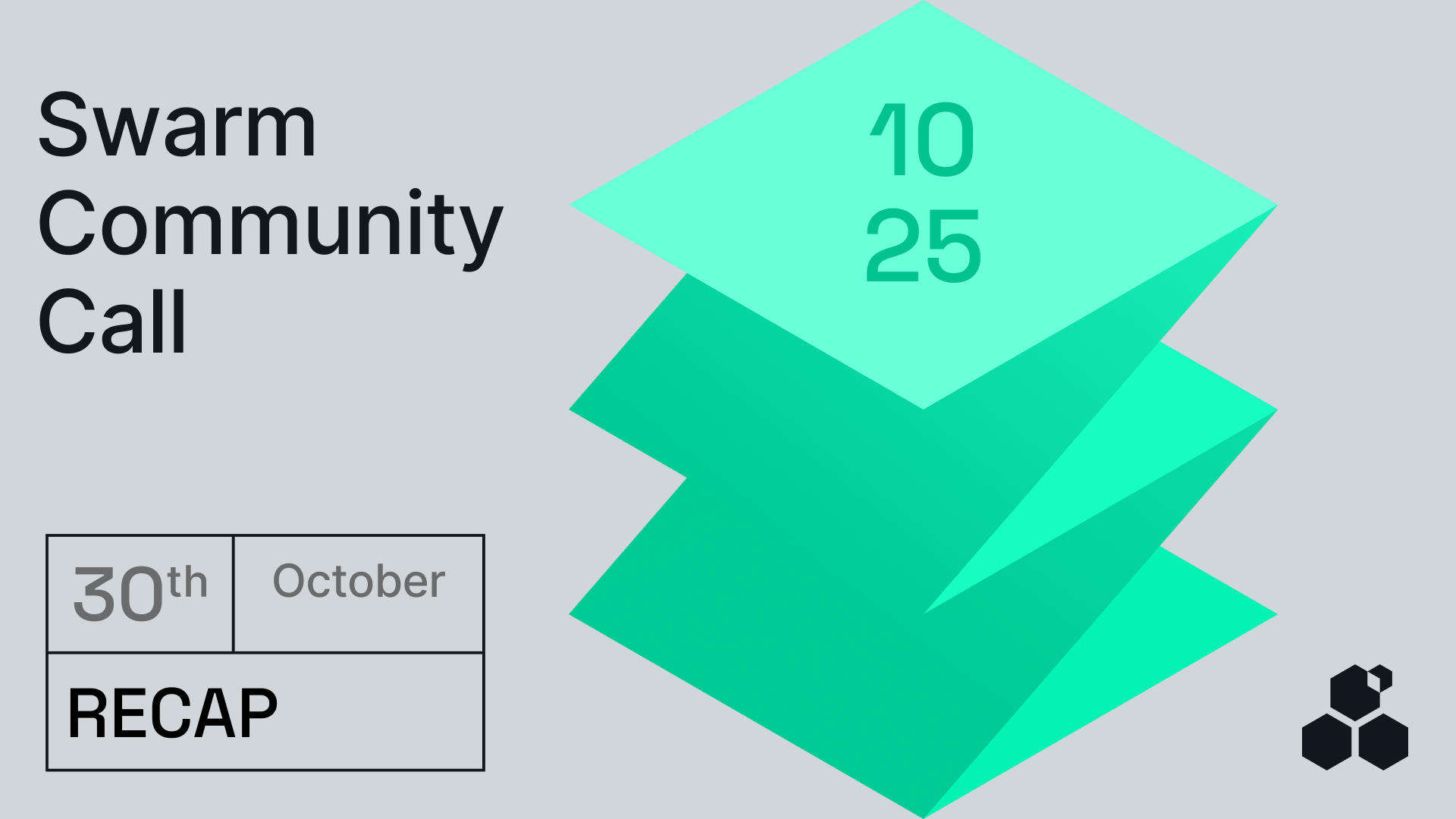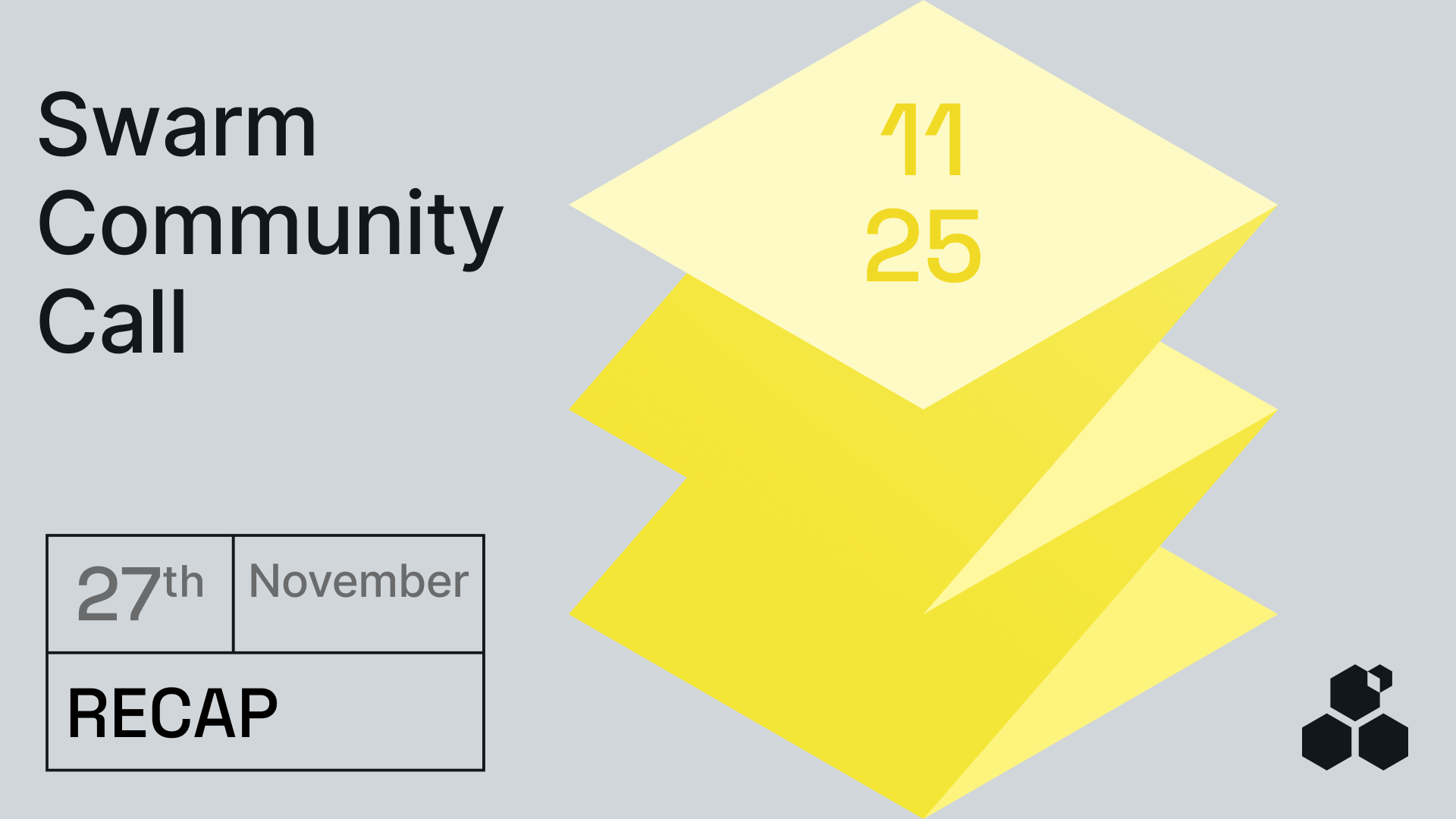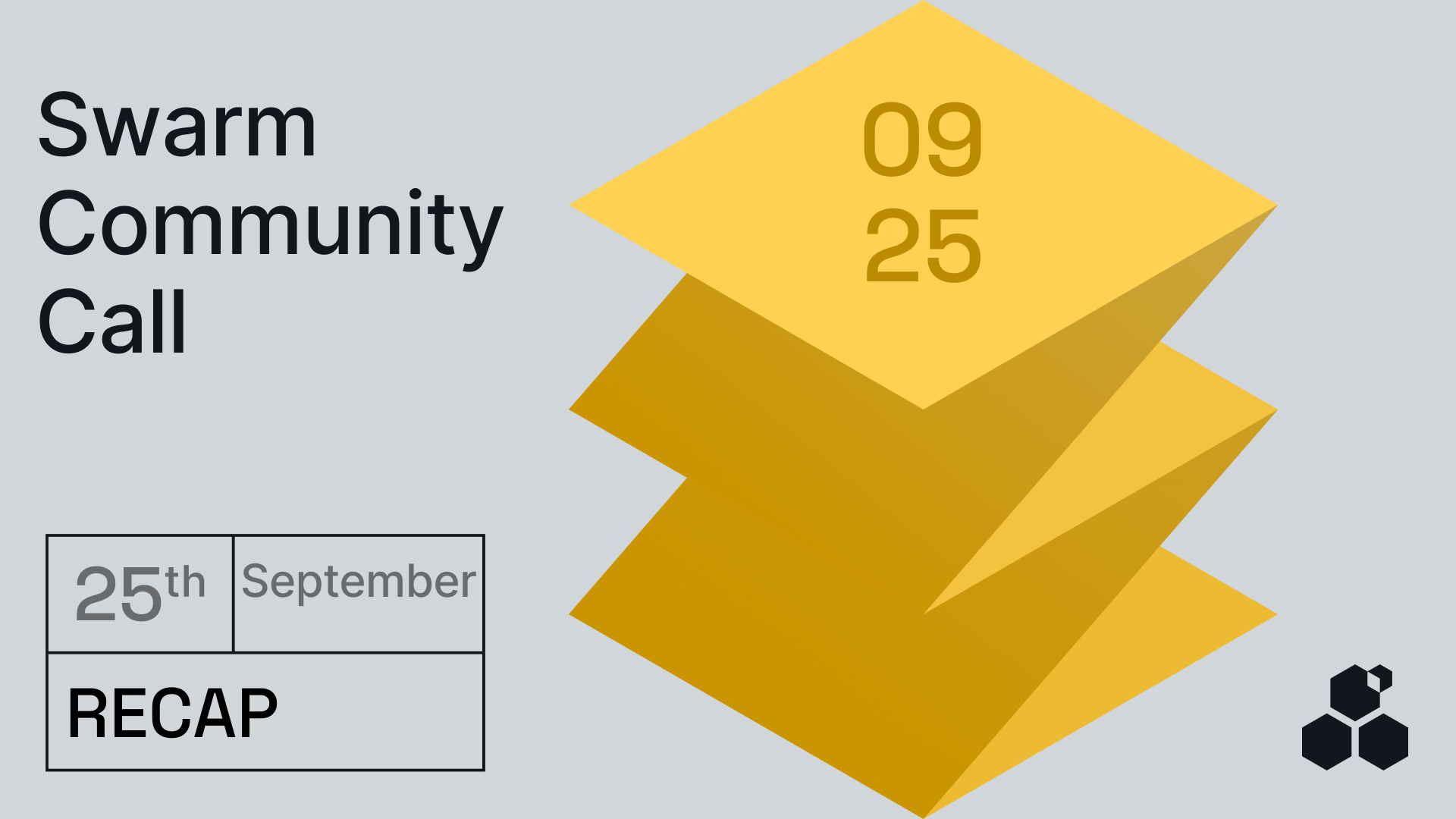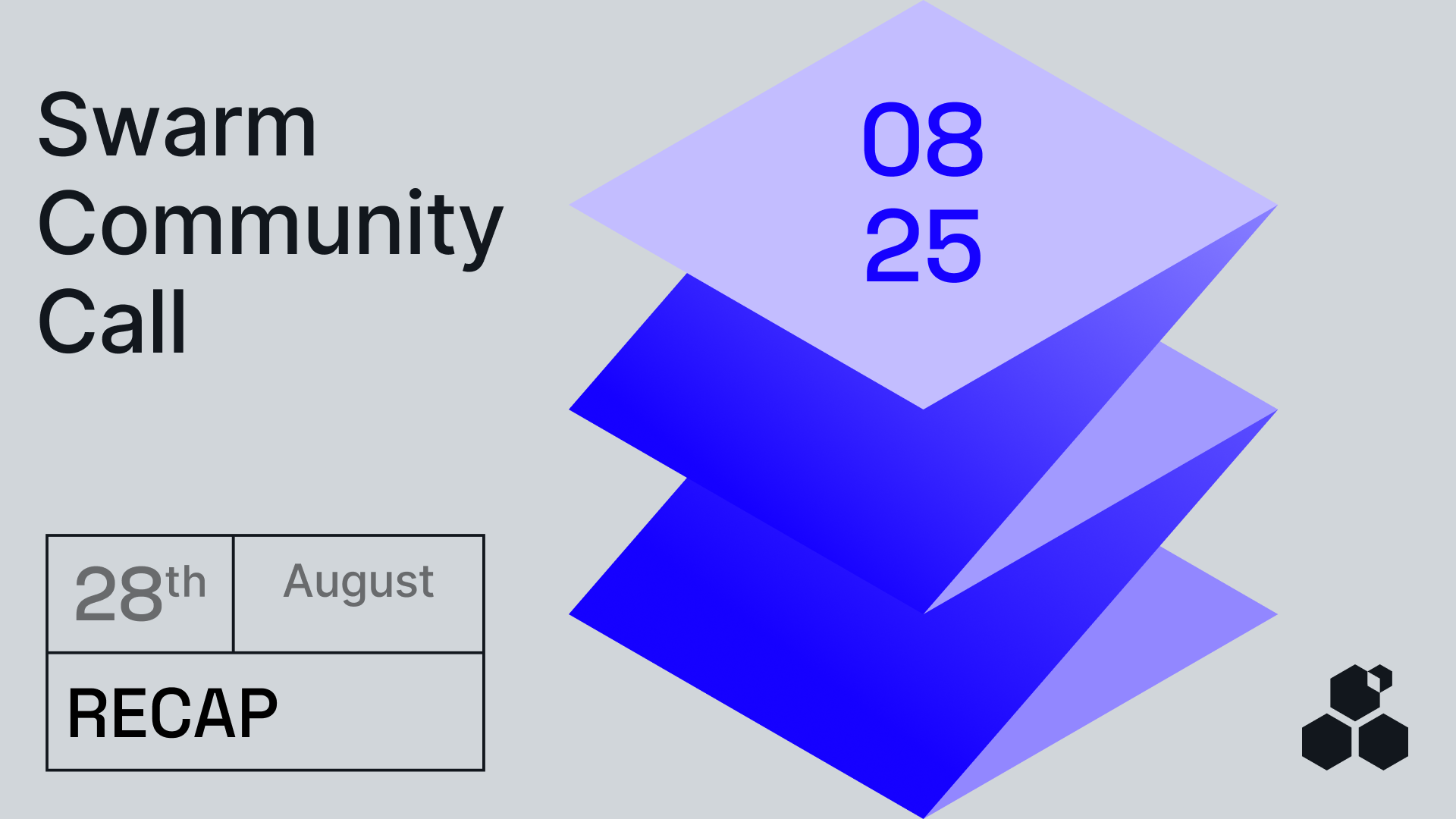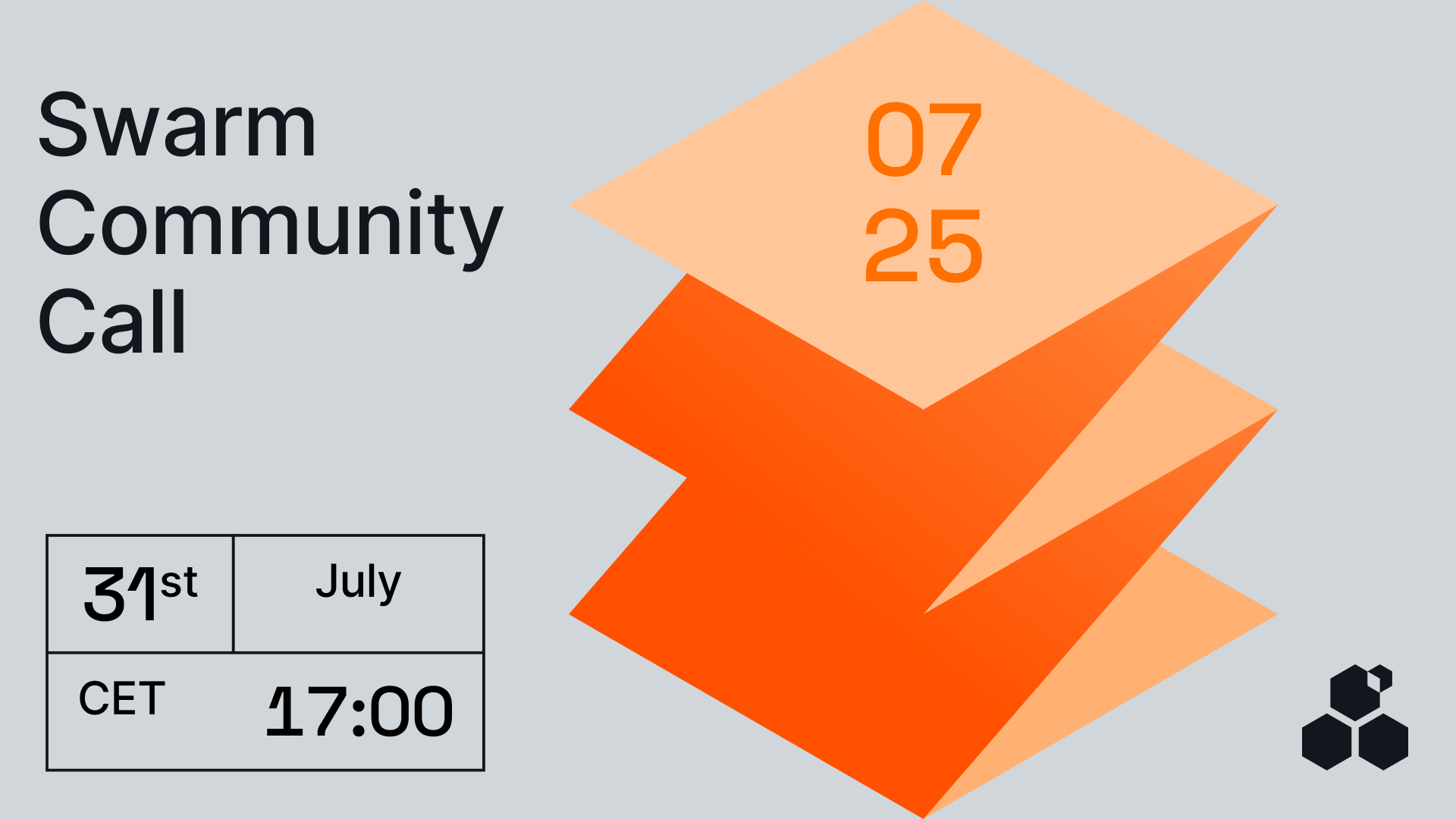The October Swarm Community Call delivered major updates on Bee v2.7, Devconnect plans, a live launch of Beeport, and a look at how AI can assist you in exploring and developing on top of Swarm.
Bee v2.7 Nearing Completion
Niki opened the Call by confirming that Bee v2.7 is now in its final testing phase. This release represents a significant step forward for Swarm’s reliability, usability, and long-term scalability.
Two major improvements stand out. First, support for multiple underlay addresses means nodes can now advertise more than one network address, improving connectivity and flexibility. Second, Auto-TLS has been implemented and is undergoing final refinement, which will allow browser-based nodes to establish secure connections automatically—a key enabler of Swarm’s upcoming in-browser node.
Another important milestone in the release is the completion of the SOC Replica feature, which introduces data replication for single-owner chunks and increases storage resilience across the network. In parallel, the engineering team strengthened Swarm’s CI/CD pipeline with expanded automated testing and quality checks, ensuring future upgrades reach users in a more stable and dependable state.
Callum also shared updates from the Research team, focusing on their ongoing work to rethink staking and incentive models. Adjustments to withdrawable stake and upgrade mechanisms aim to provide more flexibility as Swarm continues to evolve. Research into neighborhood splitting and rebalancing—a critical requirement for long-term scalability—is nearing a major milestone as well.
With the release almost ready to ship, the team emphasized that v2.7 lays the foundation for Swarm’s in-browser client and a frictionless user experience that will enable uploads and downloads without requiring users to run a node.
Announcements: Preparing for Devconnect
The conversation then shifted toward Swarm Foundation’s plans for Devconnect Buenos Aires, where the team will be active throughout the event. Swarm members will first appear at the Web3Privacy Now Cypherpunk Congress on 16 November, followed by another promising side event hosted by Solar Punk: Concept to Commit: Decentralized AI & Media at Club Lucero, 21 November.
A collaborative discussion hosted by DAIAA and moderated by Lou Kerner (CryptoMondays) will open the event at 15.00. The roundtable will explore key challenges, governance models, interoperability and opportunities for cross-project collaboration in building a truly open AI ecosystem.
Following the roundtable, there will be several hands-on workshops and live demos: Launch Your Own AI Agent on Swarm, How to Decentralize Any Frontend?, and Multimedia Streaming on Swarm.
Anyone attending Devconnect is warmly invited to join and connect with the Swarm team.
Beeport Launch! A New On-Ramp to Swarm
One of the most exciting moments of the Call was the live launch of Beeport, a new standalone application that dramatically simplifies uploading to Swarm. Unlike running a local Bee node—the most decentralized method but one that requires setup and token funding—Beeport allows users to upload files, folders, and even full websites directly from the browser using only their existing wallet.
Beeport solves several important onboarding challenges. Earlier in the year, running a Bee node involved long chain sync times and sometimes complex token logistics on Gnosis. With improvements to Bee node UX and now Beeport’s wallet-powered upload flow, users can get content onto Swarm within seconds.
During the live demonstration, Áron showed how Beeport can be used to upload a PDF, a folder of images, and a complete website. The demo went a step further by registering an ENS domain inside the Beeport app and linking it directly to the Swarm upload—resulting in a fully functioning, ENS-addressed website served from Swarm!
Although Beeport operates as a centralized on-ramp, once content is uploaded, it becomes part of the decentralized Swarm network, benefiting from Swarm’s inherent resilience and censorship resistance. Try it out here: https://beeport.ethswarm.org/
How AI Can Assist Developers Using Swarm
With modern developers increasingly relying on AI tools rather than traditional documentation browsing, it becomes essential for Swarm’s knowledge base to be accessible to AI systems as well.
To address this, Črt demonstrated the use of Context-7, a lightweight MCP server that indexes the latest Swarm documentation. Using Claude Code with the Context-7 plugin, he showed how AI could answer questions about running a Bee node and even generate TypeScript code for uploading files to Swarm—all while ensuring accuracy by referencing current docs instead of outdated training data.
While AI-written code still requires developer oversight and iteration, this approach promises to significantly speed up onboarding and experimentation, especially for new builders entering the ecosystem.
Looking Ahead
The session wrapped with an invitation to the next Community Call on 27 November, which will no doubt be filled with updates, insights, and stories from DevConnect. With Bee v2.7 nearing release, Beeport now live, and growing emphasis on usability and AI-assisted development, the Swarm ecosystem is quickly moving toward a more accessible and developer-friendly future.
Discussions about Swarm can be found on Reddit.
All tech support and other channels have moved to Discord!
Please feel free to reach out via info@ethswarm.org
Join the newsletter! .
